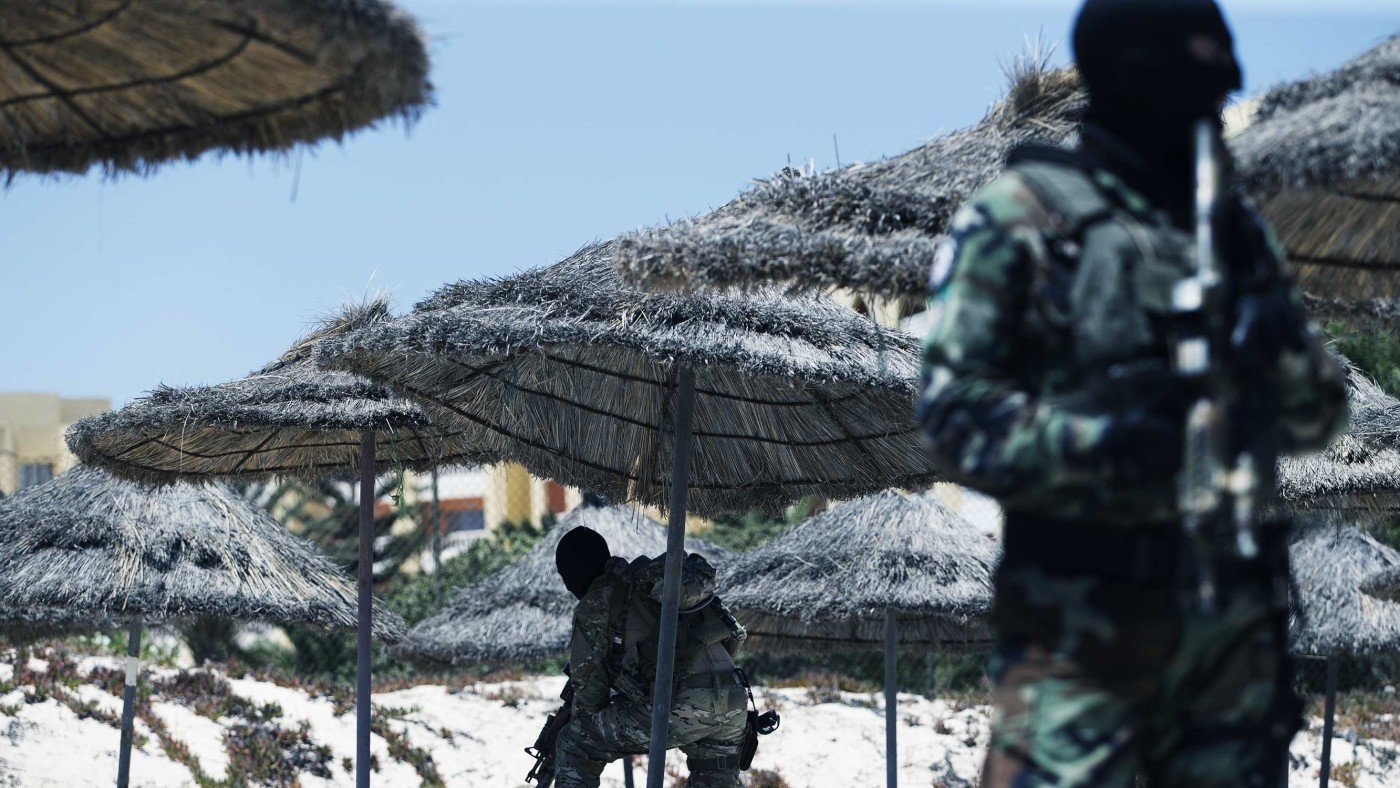‘What is the point of this democracy?’ The question came from a tourist guide in Tunisia, the solitary success story of the Arab Spring. Five years ago protesters, inspired by a self-immolating street trader, ousted their nation’s long-serving dictator and sparked revolts across the region. Now this country is the first modern Arab state judged fully free by the US think tank Freedom House, while a coalition of civic society leaders recently collected the Nobel Peace Prize for shaping a peaceful political transition.
But this week, in an alarming echo of those disruptive events five years ago, there have been angry protests again in several Tunisian cities after a jobless man killed himself over his failure to find work. Police stations were attacked, crowds marched on streets, chants rang out again for work, freedom and dignity. Once again, the root cause is a struggling economy cursed by corruption, which has led to rising unemployment especially among young people – with university graduates making up a third of those without jobs.
As can be seen so clearly in neighbouring nations, the path to democracy is difficult. This Mediterranean country of 11 million people sits perched atop Libya, which underlines the dangers of revolution with its rival governments, gangs of gun-wielding militias and recent incursions by Islamic State. And in recent months we have seen Tunisia’s valiant efforts at democratic transformation come under assault from jihadists intent on wrecking the state.
Last year, these terrorists mounted two major attacks on tourism. In March, three gunmen attacked people visiting the Bardo National Museum in Tunis, leaving 22 people dead. Three months later 30 British holidaymakers were among the dead in a massacre at a beachside hotel in Sousse. Then in November another big attack was reportedly foiled, when a cell trained in Libya and Syria was caught with rifles and explosives as it planned a raid on hotels in the same town.
Unsurprisingly, tourism has plummeted. The number of visitors has fallen by more than a quarter last year – which was already sharply down on the figures for the year before the uprising. The government has had to bail out thousands of workers in the sector whose pay suddenly stopped. Given the obvious risks, you cannot blame foreigners preferring to find their sun and seaside breaks in safer places. Yet this is a tragedy, since this crucial sector provides jobs for 400,000 people and makes up almost 15 per cent of the economy.
Unfortunately this decline plays into the hands of those terrorists seeking to sow discontent and discord. Tunisia is a beautiful nation, rich in tourist sites from superb Roman ruins to gorgeous beaches and troglodyte hotels in the desert. But now even fearful airline crews have requested not to spend overnights there. Yet each cancelled flight, each empty hotel room, each restaurant closure, each guide left without work, is one more crack on the path to stability. Slowly but surely, the threat of terror is strangling the economy.
The same chill can be seen across the region as Islamic State targets ‘apostate’ governments; indeed, just this week the insurgents released new videos directed at supporters in Tunisia and Morocco. Data released this week by the United Nations World Tourism Organisation found that while international tourism grew 4.4 per cent last year, it fell by almost double this figure in North Africa after jihadist attacks.
Egypt, another country that relies heavily on tourism, has been hit hard – especially after the November bombing of a jet flying from Sharm el-Sheikh to St Petersburg led several countries to ground flights to the resort. There have been a series of other attacks, most recently the stabbing of three tourists by two militants storming a hotel in the Red Sea resort of Hurghada. Another bomb yesterday in Cairo killed nine people near a road leading to the ancient pyramids of Giza.
The country has seen devastating decline in tourism since the overthrow of Hosni Mubarak five years ago this month, despite claims of stability under his even more repressive military successor Abdel Fatah el-Sisi. Traditionally, more than half those heading to drift down the Nile or dive the Red Sea were from Britain and Russia. But visitor numbers have plunged from 14 million in 2010 to about nine million last year, with many flights still suspended despite the government’s frantic efforts to install more scanners and security scanners. Occupancy rates in some leading dive resorts are down to just ten per cent.
This all adds up to one more reason to fear for the future of this blighted region. More than half the population is under 25, yet already rising youth unemployment runs at more than double the world average. Many work in the informal economy, where they face low pay and job security, while corruption remains endemic. This creates intense frustration for people at the start of their adult lives – and fertile ground for fanatics spreading seductive messages of religious militancy as a solution to the region’s woes. The flight of Western tourists is entirely understandable. But ultimately it only assists the fight of those wretched Islamic State militants.
Five things to see in Tunisia:
1) El Jem amphitheatre: an amazingly well-preserved Roman relic, this mighty third-century edifice once held 35,000 spectators and was used as a backdrop for Gladiator .
2) Djerba island: a gorgeous, relaxed island with a lazy vibe, whitewashed buildings and 80 miles of sandy beaches fringed with date palms.
3) Great Mosque, Kairouan: the fourth holiest Islamic city, filled with narrow lanes and colourful houses, has a stunning mosque thought to be the oldest Muslim place of worship in Africa.
4) Carthage: The Phoenician city state was sacked by the conquering Romans. Its atmospheric ruins beside Tunis remind us how even the greatest empires crash.
5) Matmata: a small Berber village famed for its underground dwellings, carved around courtyards dug into the desert. Its hotel starred as Luke Skywalker’s home in Star Wars.


